This autumn brought the third edition of Chouftouhonna, the Tunis International Feminist Art Festival. Chouftouhonna is an intersectional feminist space by and for women, questioning gender roles and breaking the importance of patriarchy.
This year, organizers took possession of public space by holding the festival in the Tunisian National Theater, in the working class neighbourhood of the Medina, or old city. In this way, Chouftouhonna sent a clear message concerning class and gender privileges, but also as regards the cis-male [1] elite monopoly and domination of artistic fields.
The festival is the first of its kind in the region, bringing together more than 250 women and women-identifying artists from more than 50 different countries in an area dedicated to feminism through multiple angles. In addition to the exhibition, screenings and live performances, workshops and lectures were also held to encourage the public to rethink feminism and feminist issues.
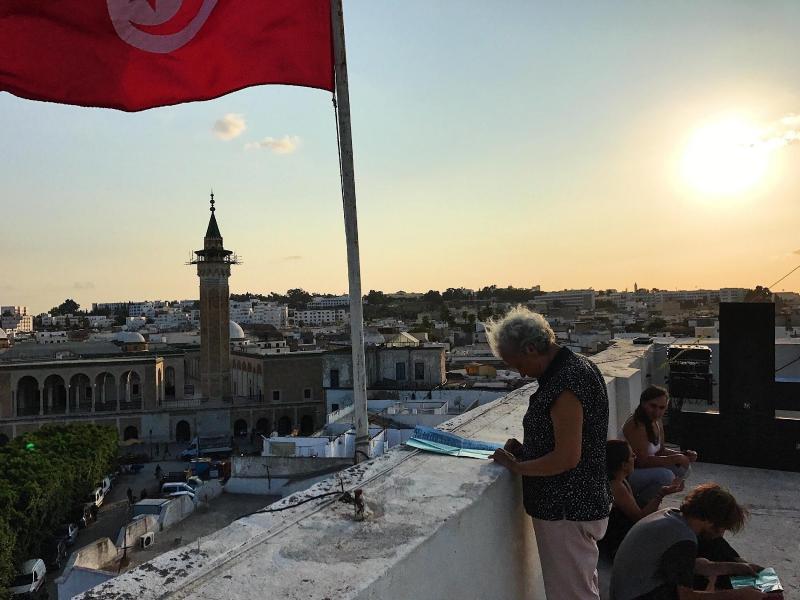
Jalila Baccar, one of the jury members, looks over the festival program on the roof of the Tunisian National Theater (palace Halfaouine). Each day of the festival brought together a diverse mix of people from artistic and cultural spheres and people from the local neighborhood of Medina. The roof was also the place where the percussion workshop was held, in which several local residents participated. Overheard, two elderly men talking to a festival organizer:
"We have lived here forever, and this is the first time we have entered the palace Halfaouine."
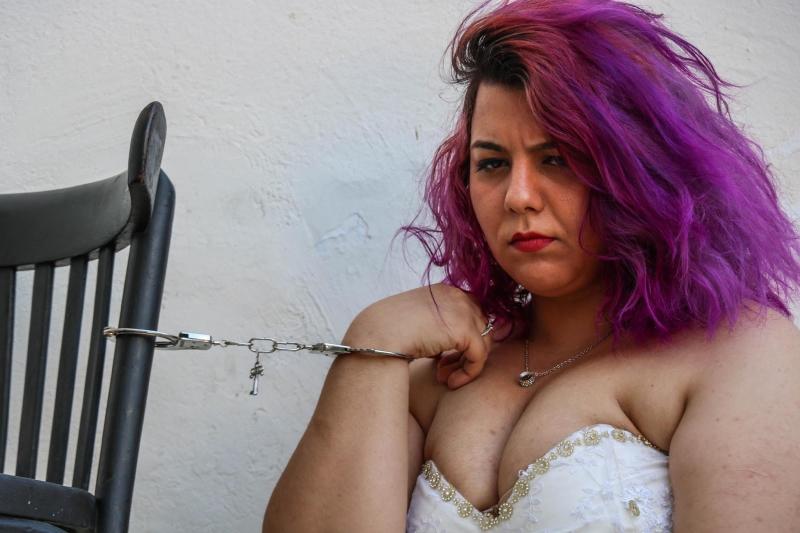
Tunisian performance artist Gluco Mania launched her first public project, "Chairy-tale" at the festival. Mania’s performance, a metaphor for human relationships through her interaction with a chair, was greeted with unanimous applause from the audience.
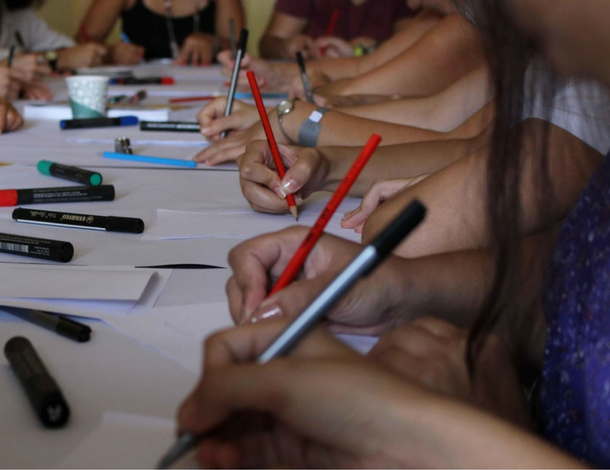
Participants at Chouftouhonna’s Fanzine workshop.
Fanzines are self-made magazines, institutionally independent, and made by fans for fans, and are an essential political, social and cultural tool in Tunisia’s current context.
This kind of independent media allows women and the feminist movement to document feminist struggles and spheres as well as to claim a place in the media that is very rarely given to them.
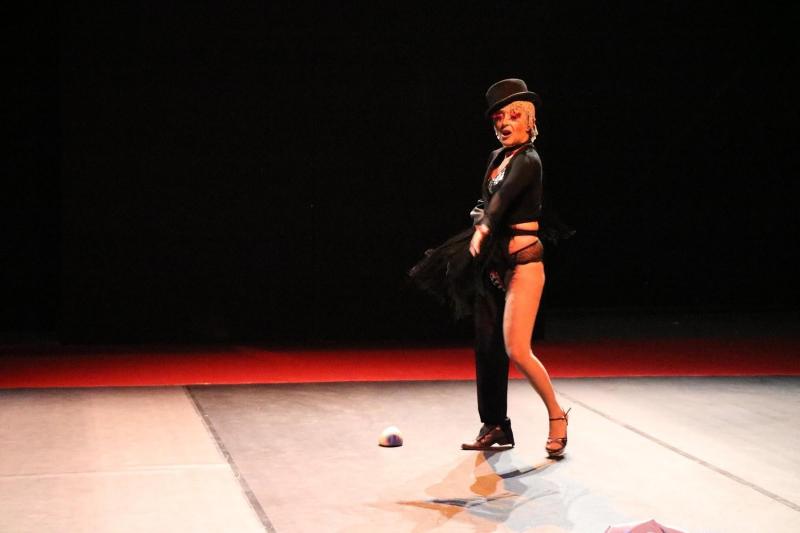
The Italian artist Senith, performing her show "Drag Queer Scio (Drag queer show)" at the festival. During her cabaret drag performance, Senith subverted the patriarchal domination that prevails in most societies and the criminalization of people with non-normative sexuality in Tunisia.
Senith’s performance was the only one in which many people left the room, demonstrating the great need for such questioning.
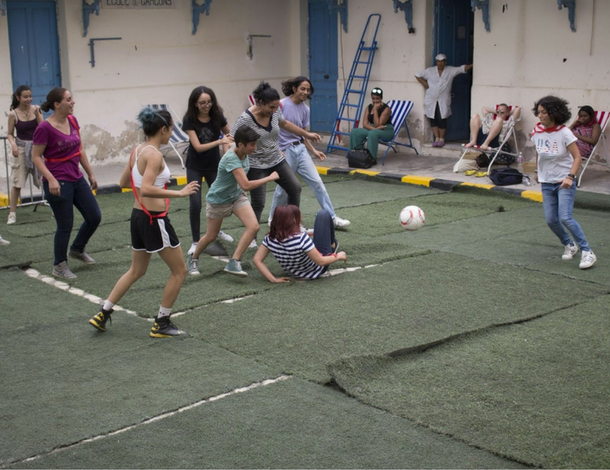
Participants at the women’s football workshop.
Sports in general and football in particular are barely accessible for women in Tunisia, but are an excellent way for young women to sidestep social and family pressure around gender roles and norms.
In this space where many participants played the sport for the first time, Jamie Zulauf led the group in developing body confidence.
Zulauf encouraged participants to think of football as a mirror of society and to take their rightful place in it, both on the ground and in the street.
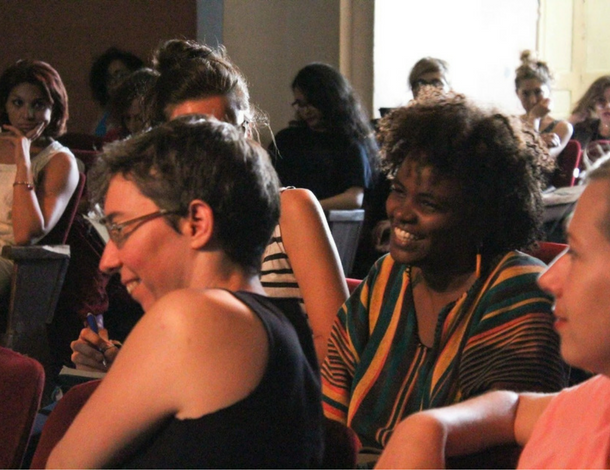
The festival discussions brought together academic panelists to discuss different problems around the normative gendering of bodies, and various ways to challenge it.
In this session on « Gendered bodies and multiple representations », Egyptian participant Nada Hasan finds parallels in Moroccan panelist Nidal Azhari’s discussion on Amazigh matriarchal societies with a comment about Nubian societies of Egypt.
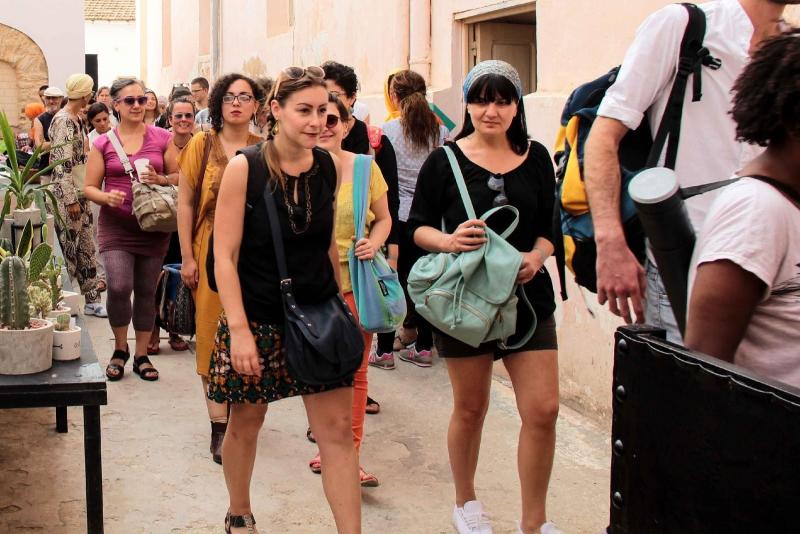
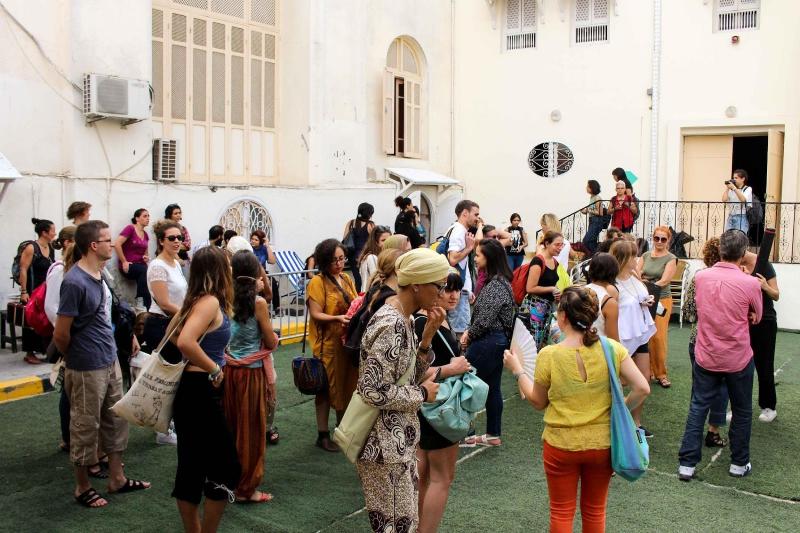
International artists arrive at the National Theatre. Participation at Chouftouhonna has doubled each year since the first edition of the festival. Just over 100 artists from all over the world brought their struggles and experiences of a world of gender policing.
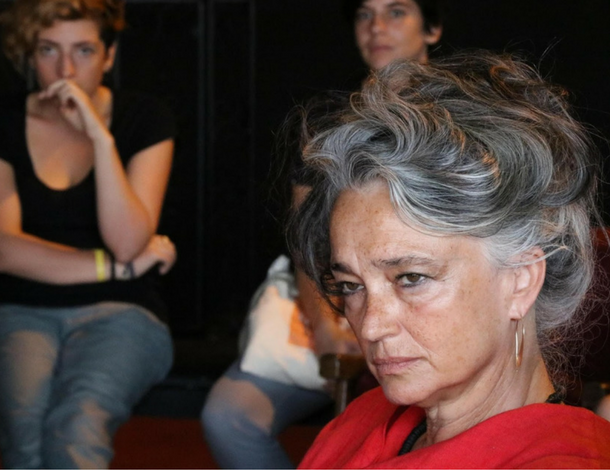
Nicoletta Nesler, Italian director of the film « Lunàdigas », winner in the Cinema category, at the last session of the festival.
The fishbowl method used in this large group session allowed for greater interactivity.
"What was interesting about the dynamic at the fishbowl is that we started off with more conceptual issues such as representations of violence and differences of fiction and documentary ... the discussion ended with artists getting to their more personal stories, recounting episodes of violence they experienced within their families," observed facilitator Anna Antonakis.
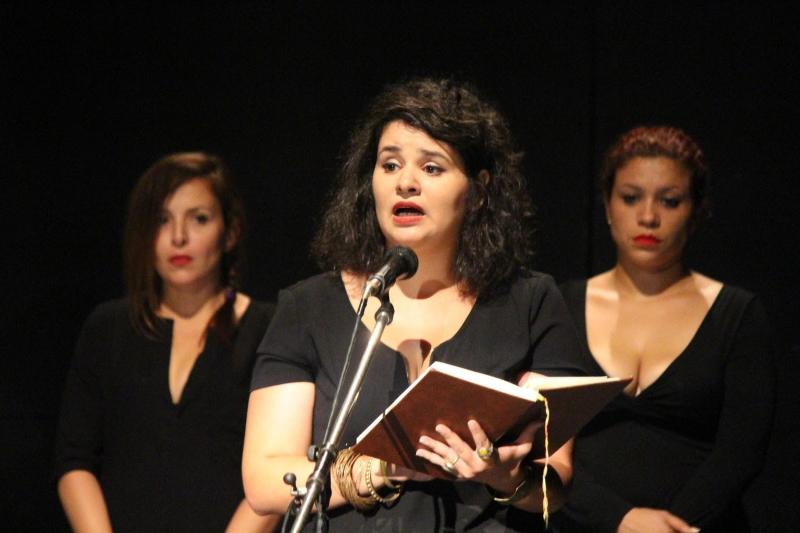
Actors Wissal Labidi, Marwa Mannai and Nesrine Mouelhi paying tribute to the late Tunisian actor and director Raja Ben Ammar at the closing ceremony of the festival. Raja Ben Ammar was director of the Mad'Art Carthage space, which hosted the first two editions of Chouftouhonna.
The three actors, who were part of Raja Ben Ammar's last play « Fenêtre sur », recalled their debut with the director, when she was still their teacher at the National Theater School, and the way she pushed them to ask questions.
[1] Cisgender (often abbreviated to simply cis) is a term for people whose gender identity matches the sex that they were assigned at birth.
